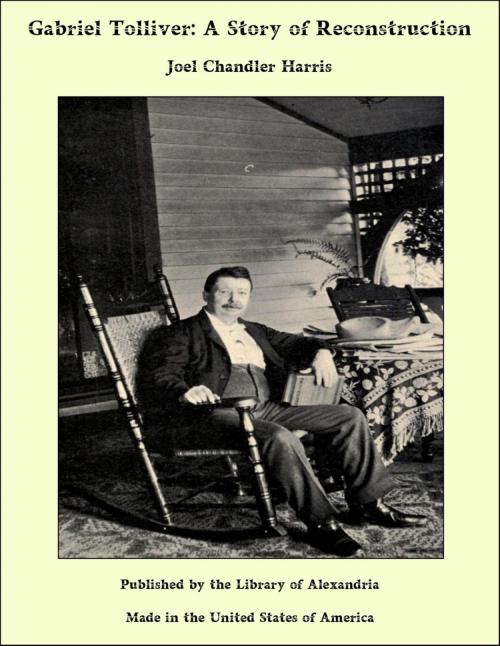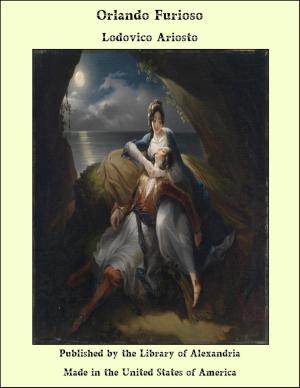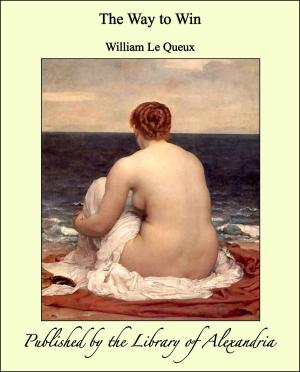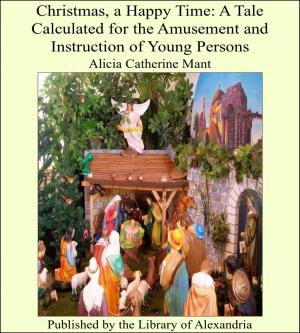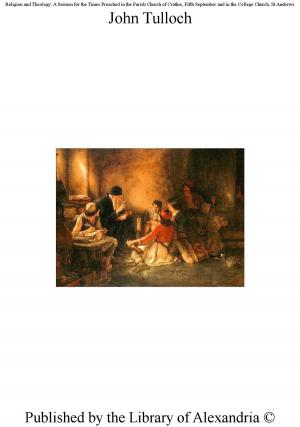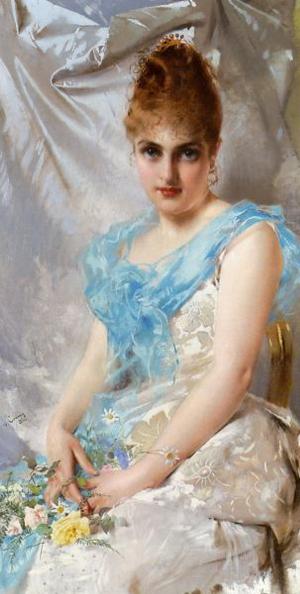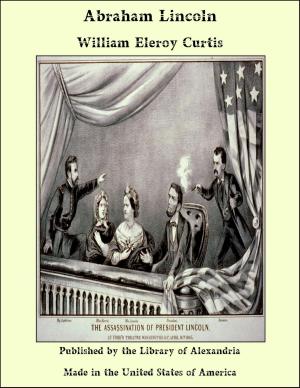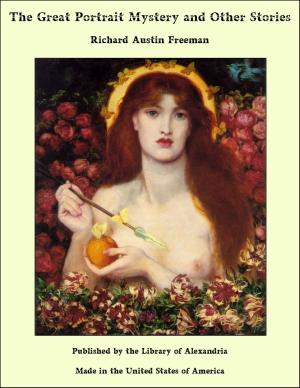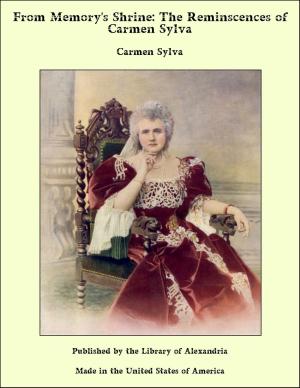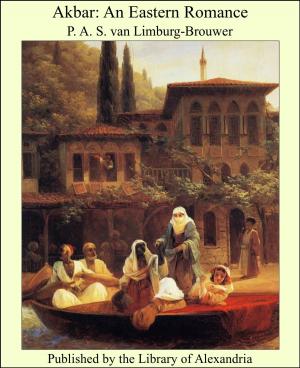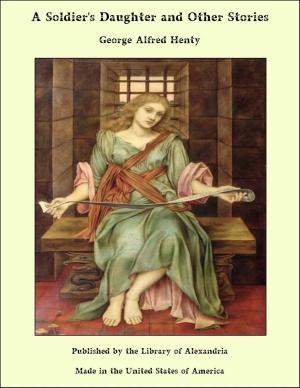Gabriel Tolliver: A Story of Reconstruction
Nonfiction, Religion & Spirituality, New Age, History, Fiction & Literature| Author: | Joel Chandler Harris | ISBN: | 9781465609847 |
| Publisher: | Library of Alexandria | Publication: | March 8, 2015 |
| Imprint: | Language: | English |
| Author: | Joel Chandler Harris |
| ISBN: | 9781465609847 |
| Publisher: | Library of Alexandria |
| Publication: | March 8, 2015 |
| Imprint: | |
| Language: | English |
From that hour Tasma Tid attached herself to Nan, following her everywhere with the unquestioning fidelity of a dog. She sat on the floor of the dining-room while Nan ate her meals, and slept on a pallet by the child's bed at night. If the African was sweeping the yard, a task she sometimes consented to perform, she would fling the brushbroom away and go with Nan if the child started out at the gate. At first this constant attendance was somewhat annoying to Nan, for she was an independent lass; but presently, when she found that Tasma Tid was a most accomplished and versatile playfellow, as well as the depositary of hundreds of curious fables and quaint tales of the wildwood, Nan's irritation disappeared. As for Gabriel—Gabriel Tolliver—he was almost as indispensable as the African woman. Children learn a good many things, as they grow older, and I have heard that Nan and Gabriel were thought to be queer, and that all who were much in their company were also thought to be queer. No one knows why. It was a simple statement, and simple statements are readily believed, because no one takes the trouble to inquire into them. A man who has views different from those of the majority is called eccentric; if he insists on promulgating them, he is known as a crank. In the case of Nan and Gabriel, it may be said by one who knows, that, while they were different from the majority of children, they were neither queer nor eccentric. They, and those whom they chose as companions, were children at a time when the demoralisation of war was about to begin—when it was already casting its long shadow before it—and when their elders were discussing as hard as ever they could the questions of State rights, the true interpretation of the Constitution, squatter sovereignty, the right of secession—every question, in short, except the one at issue. In this way, and for this reason, the two children and their companions were thrown back upon themselves. Of those who formed this merry little company, not one went to the academies that had been established in the town early enough to be its most ancient institutions. Nan was taught by her father, Randolph Dorrington, and Gabriel and I said our lessons to his grandmother, Mrs. Lucy Lumsden. Thus it happened that we were through with our school tasks before the children in the two academies had begun their morning recess. "We would never have been such good friends," said Nan on one occasion, "if I hadn't wanted to go to your house, Gabriel, to see how your grandmother wavies her hair. I saw Cephas, and asked him to go along with me." Child as she was, Nan had her little vanities. She desired above all things that her hair should fall away from her brow in little rippling waves, like those that shone in the silver-grey hair of Gabriel's grandmother.
From that hour Tasma Tid attached herself to Nan, following her everywhere with the unquestioning fidelity of a dog. She sat on the floor of the dining-room while Nan ate her meals, and slept on a pallet by the child's bed at night. If the African was sweeping the yard, a task she sometimes consented to perform, she would fling the brushbroom away and go with Nan if the child started out at the gate. At first this constant attendance was somewhat annoying to Nan, for she was an independent lass; but presently, when she found that Tasma Tid was a most accomplished and versatile playfellow, as well as the depositary of hundreds of curious fables and quaint tales of the wildwood, Nan's irritation disappeared. As for Gabriel—Gabriel Tolliver—he was almost as indispensable as the African woman. Children learn a good many things, as they grow older, and I have heard that Nan and Gabriel were thought to be queer, and that all who were much in their company were also thought to be queer. No one knows why. It was a simple statement, and simple statements are readily believed, because no one takes the trouble to inquire into them. A man who has views different from those of the majority is called eccentric; if he insists on promulgating them, he is known as a crank. In the case of Nan and Gabriel, it may be said by one who knows, that, while they were different from the majority of children, they were neither queer nor eccentric. They, and those whom they chose as companions, were children at a time when the demoralisation of war was about to begin—when it was already casting its long shadow before it—and when their elders were discussing as hard as ever they could the questions of State rights, the true interpretation of the Constitution, squatter sovereignty, the right of secession—every question, in short, except the one at issue. In this way, and for this reason, the two children and their companions were thrown back upon themselves. Of those who formed this merry little company, not one went to the academies that had been established in the town early enough to be its most ancient institutions. Nan was taught by her father, Randolph Dorrington, and Gabriel and I said our lessons to his grandmother, Mrs. Lucy Lumsden. Thus it happened that we were through with our school tasks before the children in the two academies had begun their morning recess. "We would never have been such good friends," said Nan on one occasion, "if I hadn't wanted to go to your house, Gabriel, to see how your grandmother wavies her hair. I saw Cephas, and asked him to go along with me." Child as she was, Nan had her little vanities. She desired above all things that her hair should fall away from her brow in little rippling waves, like those that shone in the silver-grey hair of Gabriel's grandmother.
